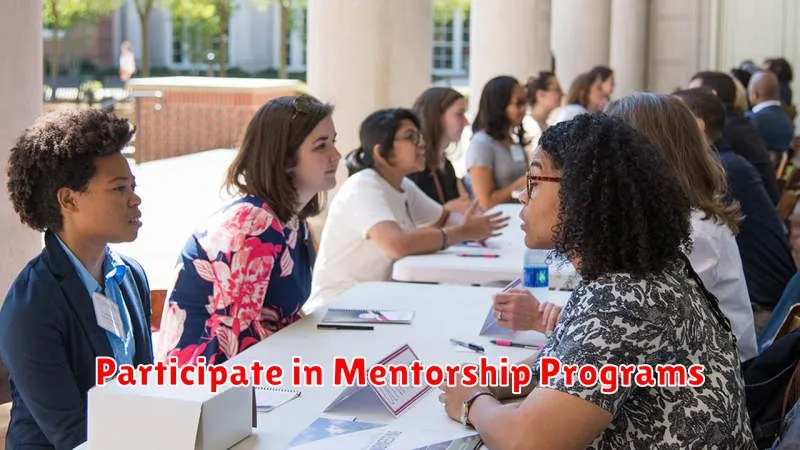Networking is a crucial skill for college students to develop, impacting career prospects and personal growth. Successfully networking in college can unlock internships, job opportunities, mentorship, and a strong professional network to carry throughout your career. This article explores proven strategies to effectively network in college, helping you build meaningful connections and maximize your college experience. Learn how to network effectively at career fairs, student organization meetings, and even casual campus encounters to build a robust professional network. Understanding the importance of college networking and mastering the techniques to connect with professionals is essential for navigating the professional landscape after graduation.
Whether you’re a freshman just beginning your college journey or a senior preparing to enter the workforce, networking in college offers invaluable opportunities. This guide provides practical tips for effective networking, from crafting a compelling elevator pitch to following up after networking events. You’ll discover techniques to initiate conversations, build rapport with alumni and professionals, and cultivate lasting relationships. Explore the key elements of successful networking in college and learn how to leverage these skills to achieve your career goals. From attending industry events to utilizing online platforms like LinkedIn, discover the diverse avenues available for college networking and how to make the most of these resources.
Attend Department Events and Talks
Your department likely hosts a variety of events throughout the semester, from guest lectures and career workshops to social gatherings and alumni panels. These events are prime opportunities to connect with faculty, fellow students, and professionals in your field.
Active participation is key. Don’t just attend; engage with the speakers and attendees. Ask thoughtful questions during Q&A sessions, introduce yourself to people you don’t know, and contribute meaningfully to conversations.
Departmental events offer a more focused networking environment compared to larger university-wide events. You’ll be surrounded by people who share your academic interests, creating a natural starting point for conversations and potential collaborations.
Checking your department’s website and subscribing to their newsletters or social media pages are effective ways to stay informed about upcoming events.
Engage in Student Organizations

Joining student organizations is a powerful way to expand your network in college. These groups offer built-in opportunities to connect with peers who share similar interests, whether academic, professional, or social.
Actively participating in clubs and organizations allows you to develop valuable teamwork and leadership skills, which are highly sought after by employers. It also provides a platform to meet upperclassmen who can offer mentorship and guidance, and potentially connect you with internships or job opportunities.
Consider joining organizations related to your major or career aspirations. This can provide valuable insights into your chosen field and expose you to professionals already working in the industry. Don’t limit yourself – exploring different organizations can broaden your horizons and introduce you to a diverse range of individuals.
Use LinkedIn and Alumni Platforms
LinkedIn is a powerful tool for college students to begin building their professional network. Create a complete profile highlighting your skills, experiences, and interests. Connect with classmates, professors, and professionals in your field. Join relevant groups to engage in industry discussions and expand your connections.
Many colleges offer alumni platforms. These platforms are invaluable resources for networking. Search for alumni working in your desired field and reach out to them. A polite introduction referencing your shared alma mater can open doors to informational interviews, mentorship opportunities, and potential job leads. Alumni often want to help current students, so don’t hesitate to connect.
Participate in Mentorship Programs

Mentorship programs offer invaluable opportunities to connect with experienced professionals in your field of interest. Mentors can provide guidance on career paths, offer industry insights, and help you develop essential professional skills. They can also introduce you to their network, significantly expanding your connections.
Many colleges and universities have established mentorship programs. Reach out to your career services office or relevant academic departments to explore available programs. Actively participate in mentorship events and maintain regular communication with your mentor to maximize the benefits of these relationships.
Beyond formal programs, consider seeking out informal mentorships. Identify individuals you admire in your field and respectfully request their advice or guidance. Networking events, conferences, and even online platforms can be excellent avenues for initiating these connections. Remember to be proactive and respectful of their time.
Follow Up with Professors and Peers
Following up after initial interactions is crucial for building strong professional relationships. After attending office hours or having a meaningful conversation, send a brief thank you email. This shows initiative and keeps you top of mind.
For professors, reiterate your interest in their area of expertise. If you discussed specific research, mention it. For peers, suggest grabbing coffee or collaborating on a project. These small gestures solidify connections and open doors to future opportunities.
Maintaining contact doesn’t require constant communication. Periodically checking in with professors regarding research updates or career advice demonstrates genuine interest. With peers, consider joining study groups or attending campus events together to further strengthen your bond. Consistency is key for nurturing long-term professional relationships.

